
Home

About me

Academic

Professional

Guitar

Bodybuilding

The Geeky stuff...

Gallery

Downloads

Links

Contacts

|
|
 The geeky stuff
About
Admit it, we all have a "geek" inside of us... We just express our geekiness
in different ways. Here is some of my "geeky" interests... Science, philosophy,
intelligence, metaphysics... Here you will find not only a Hall of fame of some
great personalities, but also famous quotes (Dont you love them?), as well as
relevant papers....
Hall of fame
Here is some great personalities that I have found much interest in. I am
writing a small biography of each as a memoir to their great works and influence
to me and so many other people!...
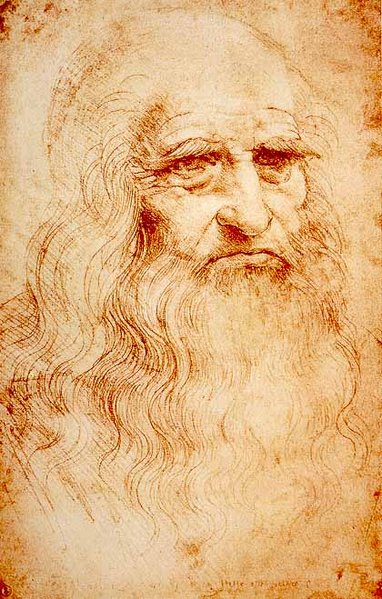
Leonardo Da Vinci (1452-1519),
Italian Renaissance architect, musician,
anatomist, inventor, engineer, sculptor, geometer, and painter.
Da Vinci
has been described as the archetype of the "Renaissance man" and as a
universal genius, with an IQ estimated to have been around 205. Leonardo is
famous for his masterly paintings, such as The Last Supper and
Mona Lisa. He is also known for designing many inventions that
anticipated modern technology, although few of these designs were
constructed in his lifetime. In addition, he helped advance the study of
anatomy, astronomy, and civil engineering. Renaissance humanism saw no
mutually exclusive polarities between sciences and arts.
|

"The Last supper" |

"Mona Lisa" |
|
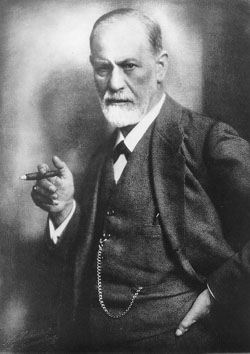
Sigmund Freud (1856-1939),
Austrian psychiatrist
Freud was founder of the psychoanalytical school of
psychology, based on his discovery
that unconscious motives control much behavior, that particular kinds of
unconscious thoughts and memories, especially sexual and aggressive ones,
are the source of neurosis, and that neurosis could be treated through
bringing these unconscious thoughts and memories to consciousness in
psychoanalytic treatment. After initially studying hypnotism, he later
studied the free association and dream analysis in developing what is now
known as "the talking cure." These became the core elements of
psychoanalysis. He was initially especially interested in what was then
called hysteria, now called conversion syndrome, but expanded his work to
other forms of neurosis, especially obsessive-compulsive disorder.
Freud is
considered to be not only one of the major innovators in psychology but also
one of the major figures in Western thought. His ideas have impacted not
only psychology but also philosophy, sociology, anthropology, political
science, history, literary criticism, art history, music history, and
cultural studies.
|
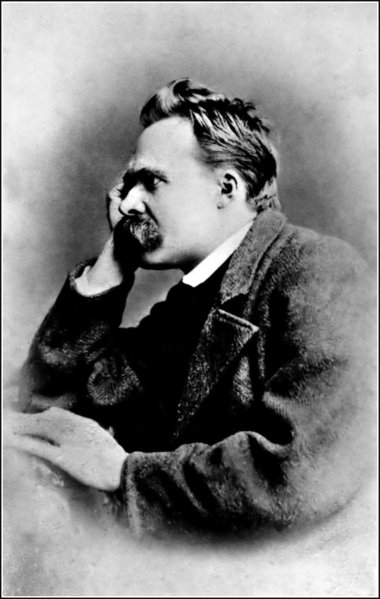
Friedrich Nietzsche (1844-1900), German Philosopher,
psychologist and philologist
Particularly aggressive, he was a severe critic of morality, Utilitarianism,
contemporary philosophy, materialism, German idealism, German romanticism,
and of modernity in general. He is among the most readable philosophers and
penned a large number of aphorisms and varied experimental forms of
composition. Although his work was distorted and thus identified with
philosophical Romanticism, Anti-semitism, Nihilism, and even Nazism, he
himself vociferously denied such tendencies in his work, so much to point of
directly opposing them. In philosophy and literature, he is often identified
as an inspiration for existentialism and postmodernism. His thought is, on
many accounts, most difficult to comprehend in any systemized form and
remains a vivacious topic for debate. |
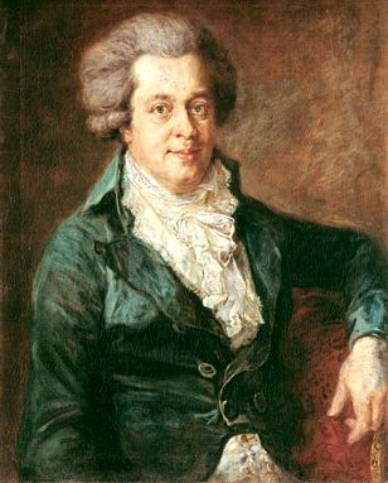
Woflgang Amadeus Mozart (1756-1791), Music composer
Mozart is among the most popular, significant
and influential composers of European classical music. His music includes
some of the acknowledged pinnacles of piano, chamber, symphonic, religious
and operatic music. Although his music's character was unappreciated by some
during his lifetime, he has been admired by later composers and many of his
works have become part of the standard concert repertoire.
10 of the most popular concerts of Mozart include:
1) Flute Concerto
No.2 In D Major: K.314
2) Piano Concerto
No.24 in c minor: K.491
3) Piano Concerto
No.9 in E flat Major: K.271
4) Piano Concerto
No.17 in G Major: K.453
5) Horn Concerto
No.3 In E-Flat Major: K.447
6) Piano Concerto
No.20 in d minor: K.466
7) Concerto for
Flute and Harp in C Major: K.299
8) Clarinet
Concerto in A Major: K.622
9) Violin Concerto
No.4 in D Major: K.218
10) Piano Concerto
No.27 in B flat Major: K.595
|
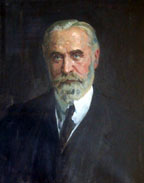
Frances Herbert Bradley (1846-1924), British philosopher
Born at Clapham, Surrey, England.
Bradley was a leading member of
the movement of British idealism, which which was strongly influenced by
German philosophers Kant and Hegel. He was famous for his pluralistic
approach to philosophy, and his unity of transcending divisions between the
philosophy of ethics, history, logic, epistemology, metaphysics and
psychology.One of Bradley's
notable characteristics, in his writing, is his technique of arguing from
the meaning of a word. In his concern with word meanings, he might be seen
as anticipating the more language-oriented philosophy of the 20th century.
|
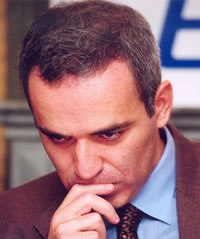
Garry Kimovich Kasparov (1963-today), Russian chess grandmaster
Kasparov is one of the strongest chess players in history. His 2851 ELO
rating in the July 1999 FIDE rating list is the highest rating ever
achieved. As of July 2005, Kasparov's 2812 ELO rating places him highest on
the FIDE listing. Ranked first in the world for nearly all of the 20 years
from 1985 to 2005, Kasparov was the last undisputed World Chess Champion
from 1985 until 1993; and continued to be "classical" World Chess Champion
(of the PCA and WCA) until his defeat by Vladimir Kramnik in 2000.. He also
won the Chess Oscar four times, in 1995, 1996, 2001 and 2002.
Kasparov announced his retirement from
professional chess on March 10, 2005, instead devoting time to politics and
to do "everything in my power to resist Vladimir Putin's dictatorship." He
is a leading member of the Committee 2008: Free Choice, a group of liberal
opposition leaders. |
Papers
Here are some scientific papers about intelligence that I find very
interesting. Highly recommended for reading if you have any interest in the
subject.
IQ basics
IQ Percentile and Rarity Chart
IQ
average in various countries
Is it possible to exercise your brain the same way you exercise your muscles?
Estimated IQ for 301 eminent geniuses between 1450-1850
Estimated IQ of famous people
Countries Ranked by Population to 'Intellectual' Nobel Prize Ratio
The Outsiders - by
the Prometheus society
Theories of multiple intelligence by Howard Gardner
Famous quotes
Here is some of my favourites...
One said of suicide, "As long as one has brains one should
not blow them out." And another answered, "But when one has ceased to have them,
too often one cannot."
F.H. (Francis Herbert) Bradley (1846-1924), British philosopher
"Only
two things are infinite, the universe and human stupidity, and I'm not sure
about the former."
- Albert Einstein (1879-1955)
"There are those who so dislike the nude that they find
something indecent in the naked truth." - F.H. Bradley (1846-1924), British philosopher
"If
you want to make an apple pie from scratch, you must first create the universe."
- Carl Sagan
"The force of the blow depends on the resistance. It is
sometimes better not to struggle against temptation. Either fly or yield at
once." - F.H.
Bradley (1846-1924), British philosopher
"Justice?�You get justice in the next world, in this
world you have the law."
- William Gaddis (b. 1922), U.S. novelist
"What is good?�Everything that heightens the feeling of
power, the will to power, power itself in man."
- Friedrich Nietzsche (1844-1900), German philosopher, psychologist, philologist
"If you have no power, talk about your influence. If you
have power, talk about the constraints that hem you in."
- Mason Cooley (b. 1927), U.S. aphorist
Web site and all contents � Copyright Simon Chatzigiannis 2005, All rights reserved.
Free website templates
|
|









